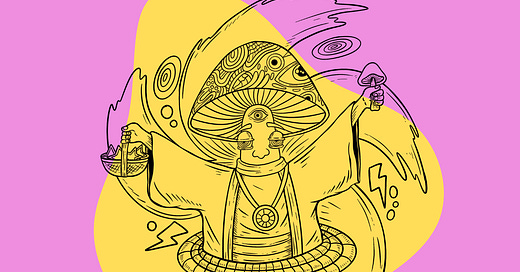Plastic shamanism (AKA pseudo-shamanism) has become a pressing issue in the world of psychedelics. As a new wave of psychotourism surges, there are countless stories of people getting ripped off, abused, or otherwise harmed by fake medicine men selling spiritual salvation and transformation under the guise of authentic Indigenous healing practices.
Plastic shaman refers to a person who claims to possess Indigenous knowledge and spiritual powers but is considered illegitimate or fraudulent by the communities from which this knowledge was appropriated.
The plastic shaman often has no genuine connection to the traditions they claim to represent. In cases where this connection is authentic, the individual is seen to be exploiting knowledge for monetary, social, or self-aggrandizing motivations.
Plastic shamans market themselves and their services despite minimal training and often demonstrate a blatant disregard for both safety and ethical boundaries upheld by Indigenous tradition.
Warning to psychedelic travelers: Be careful and deliberate when selecting psychedelic retreat centers or facilitators.
Keep reading with a 7-day free trial
Subscribe to Tripsitter to keep reading this post and get 7 days of free access to the full post archives.






